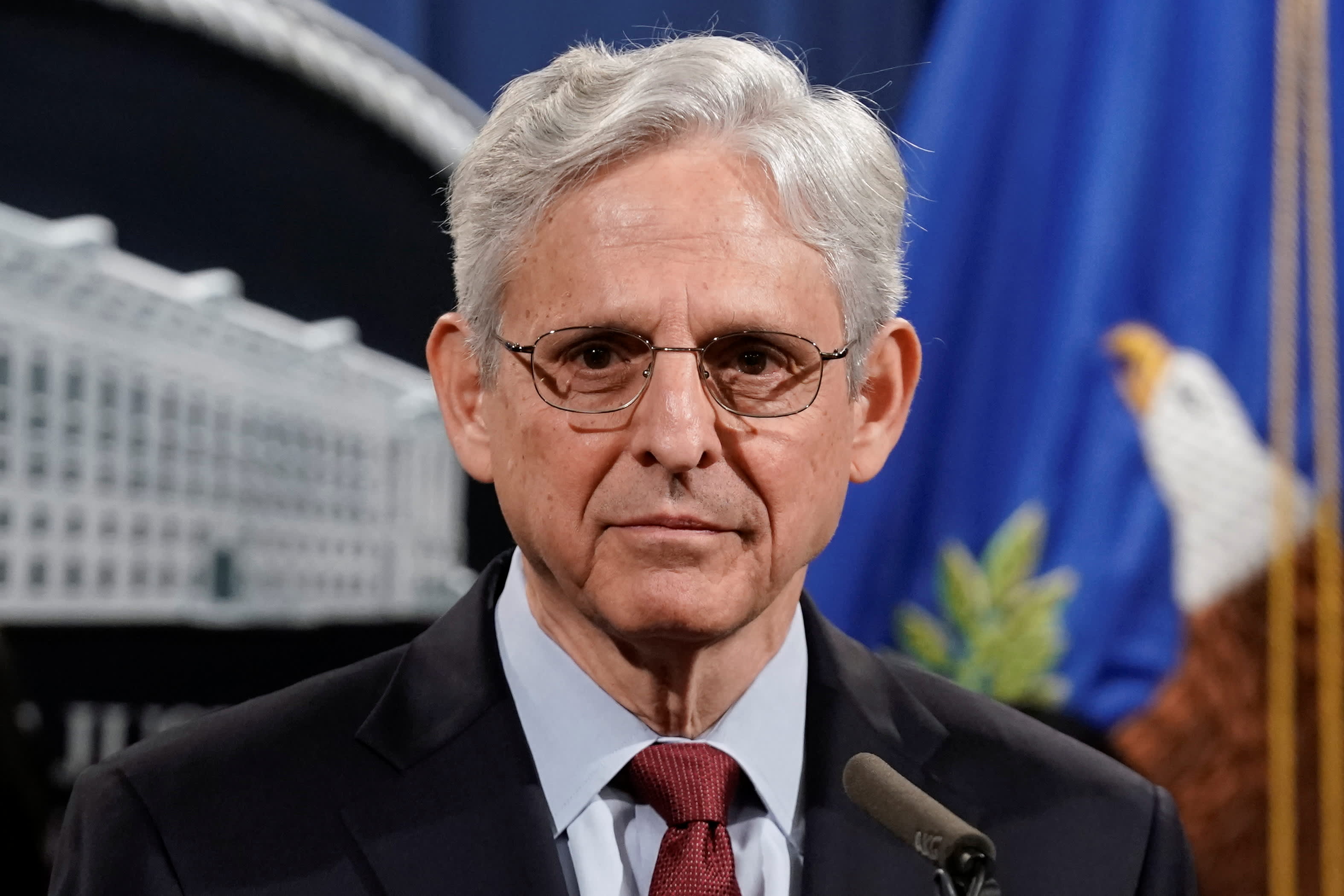
U.S. Attorney General Merrick Garland looks on as he announces that the Justice Department will file a lawsuit challenging a Georgia election law that imposes new limits on voting, during a news conference at the Department of Justice in Washington, D.C., June 25, 2021.
Ken Cedeno | Reuters
The Department of Justice on Monday formally prohibited federal prosecutors from seizing information or records from journalists in leak investigations, with some exceptions, overturning years of department policy.
The department had announced the policy change last month.
The change comes in the wake of revelations that the department obtained records of journalists from CNN, The Washington Post and The New York Times in the last year of the Trump administration. This drew criticism from lawmakers, press-freedom organizations and President Joe Biden, who vowed in May to halt the department’s practice.
Under the new policy, federal prosecutors are now prohibited from obtaining journalists’ records, including phone and digital records. They are also barred from compelling testimony from journalists.
However, the prohibition does not apply when a journalist is the target of a criminal investigation or records fall outside of newsgathering activities, according to the memo.
Other exceptions include when a journalist is an agent of a foreign power, a member of a foreign terrorist organization and when obtaining records from journalists would prevent serious bodily harm or death, according to the memo.
The department also noted it would support legislation that codifies protections for journalists, adding that Deputy Attorney Lisa Monaco would consult with others to develop further regulations on the issue.
Prior to the change, the department could secretly obtain journalists’ records from phone and technology companies as long as they passed a “balancing test” where the interest of national security outweighs the interest of a free press. The government determined the passage or failure of the test, a process that drew criticism from Attorney General Merrick Garland.
“A balancing test may fail to properly weight the important national interest in protecting journalists from compelled disclosure of information revealing their sources, sources they need to apprise the American people of the workings of their government,” Garland said in a memo on Monday.
Multiple previous administrations have secretly seized journalists’ records.
In 2013, the Obama administration in 2013 obtained the records of an Associated Press journalist as part of an investigation into media leaks. Then-Attorney General Eric Holder defended his department’s use of the practice. However, he later issued a revised set of guidelines for leak investigations, including requiring the authorization of the highest levels of the department to issue subpoenas.
Under former President Donald Trump, the department maintained these practices during investigations into Russia and other national security matters.
Press-freedom organizations such as the Reporters Committee for Freedom of the Press have championed the new policy.
“The attorney general has taken a necessary and momentous step to protect press freedom at a critical time. This historic new policy will ensure that journalists can do their job of informing the public without fear of federal government intrusion into their relationships with confidential sources,” Reporters Committee for Freedom of the Press executive director Bruce Brown said.




